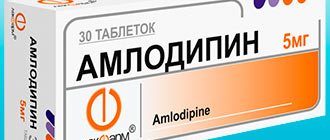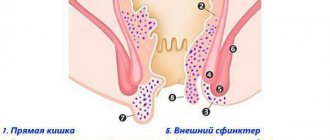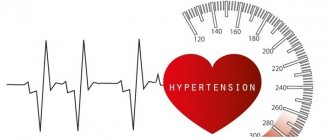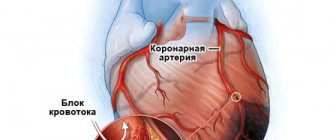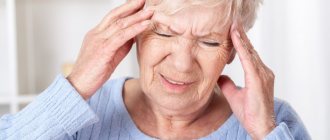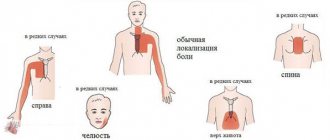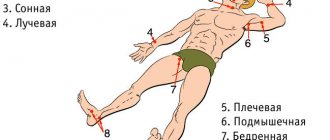Vegetovascular dystonia (hereinafter referred to as VSD) is a medical problem that almost every modern person faces. VSD “makes itself known” by disruptions in the functioning of the autonomic nervous and cardiovascular systems. So, the classic symptoms of dystonia are:
- blood pressure surges;
- insomnia;
- migraine;
- decreased ability to work;
- apathy;
- irritability.
Important: medical statistics are disappointing - at least 80% of the adult population suffers from the above signs of VSD. Some autonomic disorders are also observed in schoolchildren (in particular, during puberty, when hormonal levels are “raging”).
The prevalence of the disease leads to the fact that many patients suffering from such unpleasant manifestations are interested in the question: is it possible to drink alcohol during VSD? To answer this, it is worth understanding what vegetative-vascular dystonia is, and what changes in the body of a dystonic patient can occur as a result of drinking alcohol.
Content:
- What symptoms do patients with VSD experience?
- Where does vegetative-vascular dystonia come from?
- Alcohol with VSD
- Alcohol intoxication with VSD
- Alcoholism with VSD
- Hangover with VSD
- How is alcoholism treated in a patient with vegetative-vascular dystonia?
Vegetovascular dystonia (VSD) is a set of complaints and symptoms that occur in a patient from time to time. Violations can affect the functioning of internal organs and lead to negative mental changes.
In the international classifications of diseases it will not be possible to find the diagnosis “VSD” - it is not there. By this concept, doctors mean a kind of “assembly” of painful symptoms. But statistics show that many people experience similar syndromes.
You cannot drink alcohol if you have vegetative-vascular dystonia. Alcohol aggravates the patient’s condition and creates conditions for the progression of emerging anomalies.
General hangover symptoms
When alcohol breaks down in the body, acetaldehyde is formed. A hangover syndrome is poisoning by the breakdown products of alcohol. With excessive alcohol consumption, the main burden falls on the liver. The organ cannot quickly cope with toxins, and they accumulate in the body.
Not only internal organs are affected, but also the nervous system. The psyche and some parts of the brain also suffer. The most striking are the physiological symptoms of a hangover. They appear:
- frequent urge to urinate;
- febrile state (chills give way to fever);
- severe nausea and vomiting;
- intense sweating;
- numbness of the upper and lower extremities, convulsions;
- drowsiness and lethargy during the day and insomnia at night;
- migraine, dizziness, loss of consciousness.
From the cardiovascular system, tachycardia, surges in blood pressure, and chest pain are observed. Alcohol poisoning also affects a person’s mental state. Most often, deviations from the norm manifest themselves as follows: hallucinations appear, a person is overcome by unreasonable fears, panic attacks, and thoughts of suicide arise. It is also very difficult for the patient to concentrate on something; he is tormented by vague anxiety and guilt, and an obsession with persecution appears.
What symptoms do patients with VSD experience?
The most common complaints concern:
- unstable emotional state, neuroses, depression;
- blood pressure surges;
- hormonal imbalance;
- endocrine disorders;
- pain in the heart.
Patients with VSD often note that their heart beats very fast, their palms sweat, and they feel dizzy. Their blood pressure rises and falls. Fingers tremble uncontrollably.
The level of vital energy drops. There is often a feeling of a lump in the throat. Then it becomes difficult to breathe and swallow. Hiccups, cramps, flatulence, pain of any localization - all these are also manifestations of VSD, and alcohol always intensifies such symptoms.
Where does vegetative-vascular dystonia come from?
The symptom complex negatively affects a person’s life - it reduces its quality. Many people do not understand why it occurs in them. Possible reasons include:
- hypoxia during intrauterine development of the fetus;
- head injuries received by a child during natural childbirth;
- severe infectious and viral diseases suffered in the first year of life.
Under the influence of these factors, the somatic and autonomic nervous system is formed incorrectly. As a result, children suffer from frequent regurgitation, painful colic, insomnia, and decreased immunity.
During adolescence, their internal organs grow faster than stable neuroendocrine regulation is established. Then they make themselves known:
- heartache;
- blood pressure changes;
- asthenia;
- high level of anxiety;
- impairment of cognitive functions (attention, thinking, memory).
According to statistics, from 12 to 29% of children of primary school and adolescence experience manifestations of vegetative-vascular dystonia. In adults, the symptom complex occurs in response to:
- exacerbation of chronic diseases;
- severe stress;
- received traumatic brain injuries;
- endocrine disorders;
- depression;
- hormonal imbalances.
It has been noted that people with a genetic predisposition to VSD experience this syndrome more often than others.
Considering the above, it becomes clear that it is almost impossible to determine the origins of vegetative-vascular dystonia. After all, the disorder usually has its roots in the period of intrauterine development or the first year of a person’s life.
The mechanism of panic attacks
Many people wonder why panic attacks occur after drinking alcohol? This is due to the final effect of the components of alcohol. A hangover is a powerful stressor for the body. As a result, adrenaline is released . This is a hormone produced by the adrenal glands. With its excess, tachycardia, hypertension begins, breathing quickens and an inexplicable feeling of fear appears.
As the concentration of adrenaline increases, the oxygen content in the blood also increases. Blood vessels constrict, which only increases panic. The person feels empty and lost. Sometimes aggression appears. Symptoms get progressively worse. The duration of attacks varies: from 15-20 minutes to 1-1.5 hours. The danger is that they are repeated many times. At such moments, a person urgently needs help.
Alcohol with VSD
Alcohol-containing drinks aggravate the course of vegetative-vascular dystonia, so if you suspect the presence of this disease, you should not drink. Ethyl alcohol molecules change metabolic processes and contribute to enzymatic failures. This makes the person feel even worse.
In drunken patients with VSD, the following are often recorded:
- phobias;
- panic attacks;
- severe pain syndrome of unknown origin.
Doctors are confident that the health of alcohol addicts with VSD is at risk. Treatment of such people is always more complex and lengthy. It begins only after a comprehensive diagnosis, which allows us to understand which internal organs have begun to work incorrectly or not at full capacity.
What happens if you drink more?
In large doses, ethyl alcohol greatly increases blood pressure. Moreover, this is most pronounced as alcohol is metabolized and eliminated from the body. The so-called hangover syndrome begins, which is characterized by:
- Increased blood pressure;
- Tachycardia;
- Dry skin and mucous membranes;
- Severe headaches;
- Hand tremors.
Patients suffering from VSD are at risk and may well suffer a heart attack or stroke due to withdrawal symptoms.
It is also necessary to remember that alcohol inhibits the inhibition processes in the brain, so after taking even small doses, a feeling of euphoria and lightness arises. An insatiable desire to prolong this state appears, and it becomes very difficult for the patient to refuse the next glass of alcohol.
Alcohol intoxication with VSD
Patients with vegetative-vascular dystonia who have consumed large amounts of alcohol run the risk of encountering:
- diarrhea, severe hiccups, vomiting;
- pain symptoms;
- fainting;
- hypertensive crisis.
They are prone to nervous disorders, hysteria, and unbridled aggression. They lose the ability to control their own behavior even after drinking one or two glasses of vodka.
This increased sensitivity to alcohol has a negative impact on your physical and mental well-being. It often results in life-threatening complications. Sobering up with VSD occurs more slowly, so you have to suffer from the symptoms of ethanol intoxication longer.
Alcoholism with VSD
Alcohol dependence against the background of vegetative-vascular dystonia occurs with complications. The patient quickly moves from one stage of drunkenness to another. Because of this, he is more likely to degrade and experience his first binges.
The prognosis for alcoholism complicated by VSD is unfavorable. Already at the first stages of dependence, dystonic patients encounter psychosis , “delirium tremens.” Such patients need to be treated in a drug treatment hospital. Home therapy for alcohol addiction is usually contraindicated for them due to the large number of risks.
How is alcoholism treated in a patient with vegetative-vascular dystonia?
Therapy for alcohol poisoning and chronic alcoholism that has developed against the background of VSD is not much different from the standard one. It includes:
- Carrying out detoxification measures. The patient is placed in a drug hospital, where he is given cleansing drips. Physiotherapy is used to enhance infusion therapy. In severe cases, hardware blood purification is connected. But, as a rule, it is possible to obtain the desired result with the help of droppers alone. They include absorbent drugs, glucose, hepatoprotectors, and water-electrolyte solutions. After the first infusion, the patient begins to feel better.
- Pharmacological correction. Before prescribing medications to improve the functioning of internal organs, narcologists conduct diagnostics. Alcohol addicts undergo blood and urine tests, undergo CT scans, ultrasound scans, and consult with specialists. Based on the results of the study, the doctor prescribes the necessary medications.
- Psychotherapy session. Needed to increase motivation for sobriety. In order for a patient with VSD to completely give up alcohol, he must have a strong commitment to recovery. Psychologists and psychotherapists help to form it. Experts are finding out what prompted him to drink alcohol regularly. Additionally, large-scale work is carried out with identified psychosomatic disorders.
- Coding. Today, encoding is carried out using medication, psychotherapy and hardware. With vegetative-vascular dystonia, it is not always possible to use coding medications. For example, they are not suitable if the addict has an inflamed liver or there are serious disruptions in the gastrointestinal tract. Therefore, with this syndrome, hypnosis or Dovzhenko’s stress therapy is often used. Both practices involve deep work with the subconscious. The patient is instilled with a negative attitude towards drinking and everything connected with it. In this case, there is absolutely no need to administer any medications.
- Rehabilitation. Necessary for successful adaptation to a sober lifestyle. When working with patients with VSD, doctors pay special attention to stabilizing the functions of internal organs. It is important that the patient feels well. Otherwise, he will not be able to experience the delights of a sober life and, most likely, will relapse. During the rehabilitation process, the alcohol addict attends sessions of individual and group psychotherapy and maintains constant contact with a psychologist.
Alcoholism and vegetative-vascular dystonia are diseases that can be cured. The most important thing is not to ignore dangerous signs and start therapy as early as possible. Then the craving for drinking, as well as unpleasant symptoms of unknown origin, will disappear forever.
A few more tips
In case of panic attacks due to a hangover, you should lie down on a comfortable sofa, relax your body muscles, and try to breathe evenly. Also, treatment of panic attacks after alcohol should include drinking sedatives or herbal tea, cleansing the body of toxins. It is recommended to listen to pleasant , calm music or sounds of nature. You can sign up for a massage. Communication with loved ones, favorite hobbies, and walks in the fresh air will also help you distract from anxious thoughts.
As for the prevention of panic attacks, it is necessary to stop drinking alcohol (in whole or in part). Watch your diet and exercise. Spend more time outdoors, watch your sleep (it should be at least 8-10 hours). Visit an experienced neuropsychiatrist.
Panic attacks cannot be ignored.
Associated symptoms will only intensify over time. The support of loved ones is of great importance in the fight against attacks. It’s enough just to be nearby, talk , calm. Reproaches will only make the situation worse. You should remain as calm as possible. Instead of scandals, you need to convince your loved one to see a narcologist and change their lifestyle. Without this, all efforts will be in vain.

